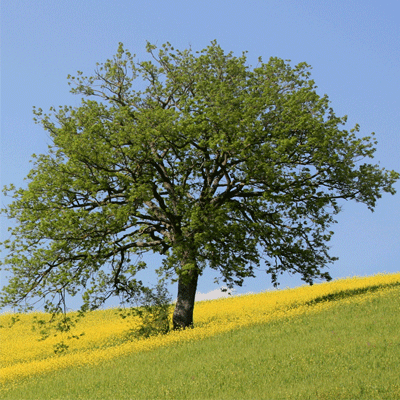 Jesus said to the crowd, ‘This is what the kingdom of God is like. A man throws seed on the land. Night and day, while he sleeps, when he is awake, the seed is sprouting and growing; how, he does not know. Of its own accord the land produces first the shoot, then the ear, then the full grain in the ear. And when the crop is ready, he loses no time; he starts to reap because the harvest has come.’
Jesus said to the crowd, ‘This is what the kingdom of God is like. A man throws seed on the land. Night and day, while he sleeps, when he is awake, the seed is sprouting and growing; how, he does not know. Of its own accord the land produces first the shoot, then the ear, then the full grain in the ear. And when the crop is ready, he loses no time; he starts to reap because the harvest has come.’
He also said, ‘What can we say the kingdom of God is like? What parable can we find for it? It is like a mustard seed which at the time of its sowing in the soil is the smallest of all the seeds on earth; yet once it is sown it grows into the biggest shrub of them all and puts out big branches so that the birds of the air can shelter in its shade.’
Using many parables like these, he spoke the word to them, so far as they were capable of understanding it. He would not speak to them except in parables, but he explained everything to his disciples when they were alone. (Mark 4:26-34)
We return to Ordinary Time in the Church’s year this Sunday with two parables about the Kingdom of God.
Parables are meant to leave the hearers wondering. They are not straight-forward answers to questions. They are food for thought.
In the Gospels Jesus is rarely concerned about facts and figures, dates and times. By using parables Jesus is trying to engage his listeners at a deeper level. He wants his teaching to seize their hearts. He wants them to discover the truth of what he is saying for themselves. It is part of the business of conversion - coming to see with new eyes.
It is wonderful to see Jesus, again and again, looking at life and at what’s happening around him, for things and images that might help the people to detect and to experience the presence of the Kingdom.
In Mark’s Gospel the Kingdom is not something yet to come, it is a present reality. It is the presence and action (reign) of God among his people. That may not always been readily seen, but it is there none the less. It may seem to have humble beginnings (like the small seed in the second parable), but the experience of it grows into something all-consuming.
The story of the seed that grows all on its own
The farmer who plants the seed knows the process: first the seed, then the green shoot, the leaf, the ear and the grain. The farmer knows how to wait and will not cut the stalk before it is time, but he does not know from where the power comes for the soil, the rain, the sun and the seed to make a seed turn into fruit. That’s what the Kingdom of God is like. It’s a process. There are stages and points of growth. It takes time and happens in time. The fruit comes at the right time but no one can explain its mysterious power.
The story of the tiny mustard seed that turns into something very big
The mustard seed is small, but it grows, to the point where the birds can make their nests in its branches. That’s what the Kingdom is like. It begins as something very small, it grows and spreads its branches providing shelter and shade where new life grows. (From Lectio Divina, June 2021 - www.ocarm.org)
Thinking about the Kingdom today sets a context for our continued listening to Mark’s Gospel and a reminder that God is at work in the world.
Jesus’ proclamation of the Kingdom is central and fundamental – the work of uncovering the often-hidden reign of God and returning humanity to God’s original plan for his family.
Download our Celebrating At Home prayer and reflection here.
Celebrating At Home 11th Sunday of Ordinary Time [PDF]
Celebrating At Home 11th Sunday of Ordinary Time [ePub]














